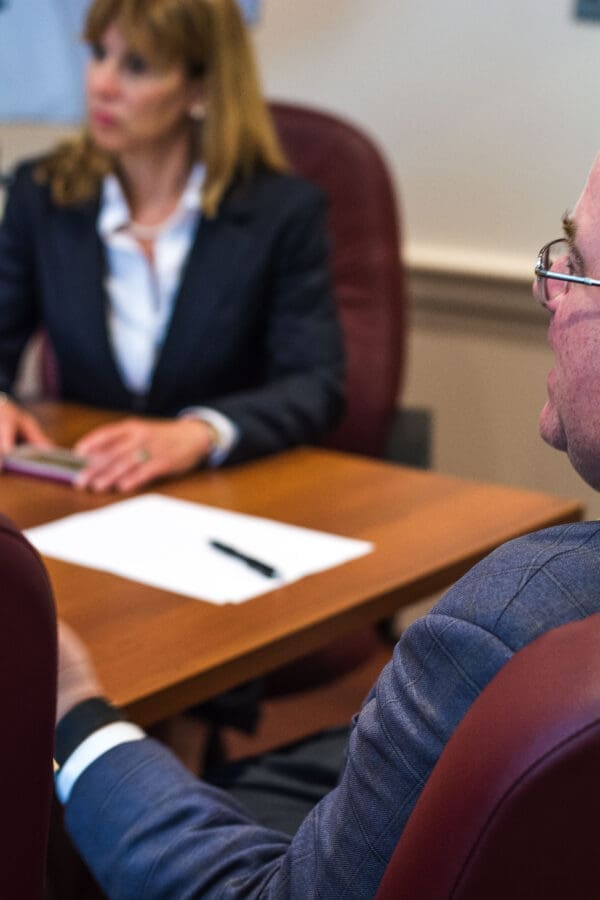
Tax Day 2019 Is Approaching. Don’t be Afraid.
This year’s Tax Day, April 15, 2019, is quickly approaching and many people are in the process of filling out their tax forms or having their accountant fill them out. While many people may be expecting a refund with the new tax laws which begin for Tax Year 2018, instead, many people are discovering that they are owe money to the IRS instead of a refund.
 While no one wants to owe money to the IRS, do not let owing money stop you from filing your annual tax return. Not filing your annual tax return — even when you owe money — does more harm than good. Once a tax return is filed and assessed by the IRS, the IRS has only ten years to collect the money due, in most cases. So, if taxpayer delays filing their tax return because they owe money to the IRS, the taxpayer is only giving the IRS more time to collect that tax. Furthermore, filing late when a taxpayer owe money increases the amount of penalties that are assessed to the taxpayer.
While no one wants to owe money to the IRS, do not let owing money stop you from filing your annual tax return. Not filing your annual tax return — even when you owe money — does more harm than good. Once a tax return is filed and assessed by the IRS, the IRS has only ten years to collect the money due, in most cases. So, if taxpayer delays filing their tax return because they owe money to the IRS, the taxpayer is only giving the IRS more time to collect that tax. Furthermore, filing late when a taxpayer owe money increases the amount of penalties that are assessed to the taxpayer.
Upon a failure to file a tax return timely, two penalties will be assessed. First, a failure to pay penalty and, second, a failure to file penalty. It is important to note that filing prior to April 15(tax day), will not start this time frame on collections starting early, but the time frame will instead start on or about April 15(tax day), depending upon when the tax return is entered into the IRS computer system and the assessment is determined by the IRS.
 While many people are concerned that the IRS will immediately begin to garnish their wages or levy their bank accounts, such drastic collection actions are usually the last thing done by the IRS. However, in order to prevent these drastic collection actions from taking place, it is important that you communicate with the IRS and work out a resolution to pay the tax debt. This can be accomplished in a number of different manners. One option is that you can request a hold on your account if you have a short-term time period in which you will be able to pay the debt. Alternatively, you can set up an installment agreement to pay the debt over a longer period of time or you can file an offer in compromise. The best method to resolve the debt will depend upon the amount of money due and your ability to pay.
While many people are concerned that the IRS will immediately begin to garnish their wages or levy their bank accounts, such drastic collection actions are usually the last thing done by the IRS. However, in order to prevent these drastic collection actions from taking place, it is important that you communicate with the IRS and work out a resolution to pay the tax debt. This can be accomplished in a number of different manners. One option is that you can request a hold on your account if you have a short-term time period in which you will be able to pay the debt. Alternatively, you can set up an installment agreement to pay the debt over a longer period of time or you can file an offer in compromise. The best method to resolve the debt will depend upon the amount of money due and your ability to pay.
In order to ensure that you prevent any enforced collection activity from taking place it is important to respond to the IRS. If you receive a notice from the IRS, it is important to (1) open the notice immediately, (2) read the notice, and (3) call the IRS in order to prevent enforced collection activity. If you need assistance in addressing such a notice, we can help.
Longman & Van Grack’s Tax Litigation & Controversy Attorneys regularly represent all types of clients in all types tax problems, including tax audits and IRS disputes. Specifically, Robb Longman, who is the former Chair of the Maryland State Bar Association’s Tax Committee, has assisted many clients through countless tax problems against the IRS and other state taxing agencies. If you would like to meet with Robb Longman or any of the tax attorneys at Longman & Van Grack in our Rockville, Bethesda, or Washington DC Offices, you can reach them at (301) 291-5027.
